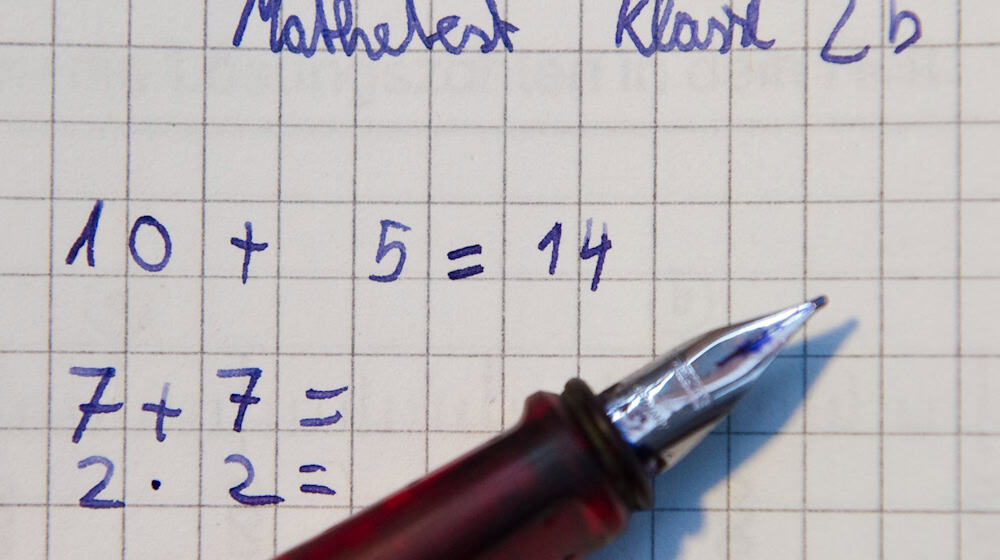Pupils with dyscalculia need better support, according to the SPD and the Greens. Following a hearing in the state parliament, SPD education expert Gerald Eisenblätter called for dyscalculia to be recognized as a partial performance weakness and for those affected not to be disadvantaged. While this has already been done in the case of dyslexia, pupils with such an impairment have so far been denied this status. Early diagnosis, a right to compensation for disadvantages and individual support measures are needed.
Early support is the be-all and end-all for dyscalculia
"Problems with arithmetic and mathematical understanding don't just grow, they get worse over time. Affected children and young people have a much higher risk of leaving school early or with poor results - with serious consequences for their later life," emphasized Eisenblätter. This is why early and individual support with sufficient time is the be-all and end-all. This is where real equal opportunities need to be addressed.
Greens also consider compensation for disadvantages necessary
"Dyscalculia is still far too often overlooked in our schools. This has serious consequences for those affected," explained Christin Melcher (Greens). If dyscalculia is not recognized early enough, educational success and self-confidence are at stake. "People with partial performance weaknesses must be better supported in terms of equal opportunities (...) It is neither scientifically nor therapeutically justifiable to treat dyscalculia and dyslexia differently when it comes to compensating for disadvantages."
Dyscalculia is recognized by the World Health Organization as a developmental disorder at school. According to Eisenblätter, this means that, on average, around two children per class have to cope with everyday school life without compensation for disadvantages and individual support. There are already regulations for this in other federal states. Compensation for disadvantages can, for example, consist of giving those affected more time for work or exams or allowing the use of aids.
Copyright 2025, dpa (www.dpa.de). All rights reserved










